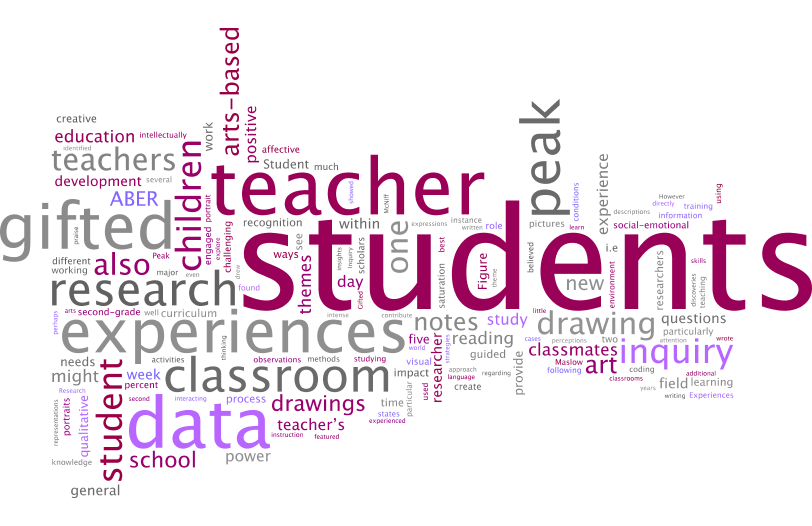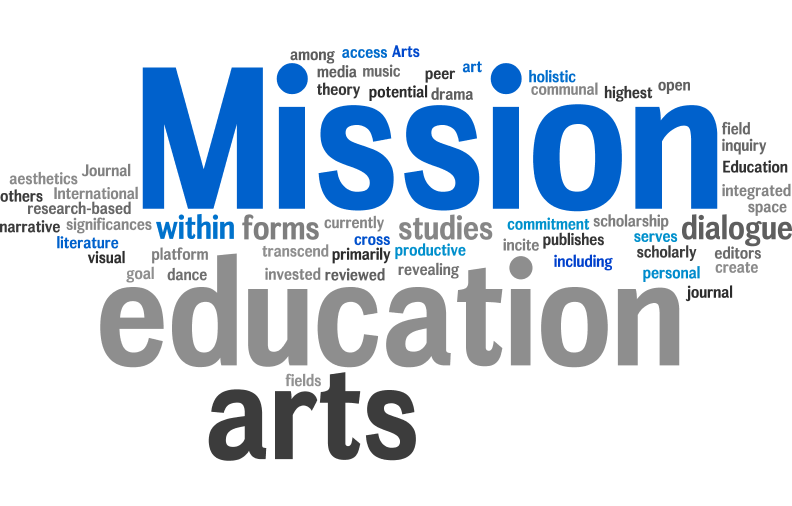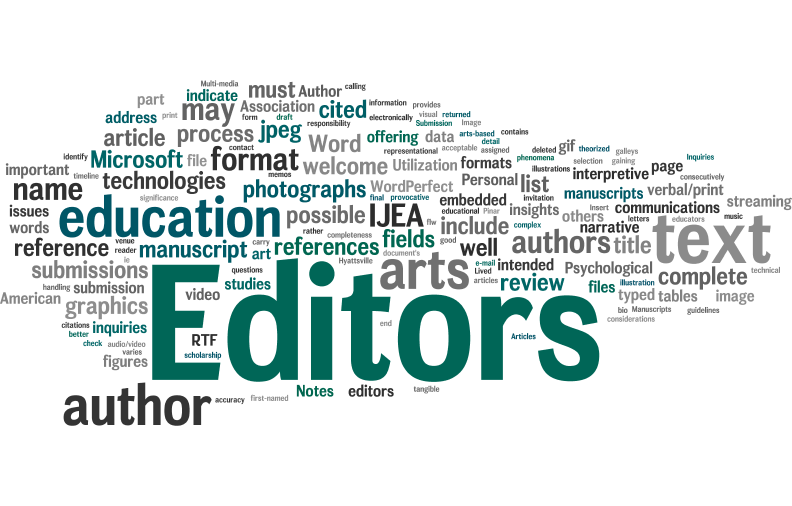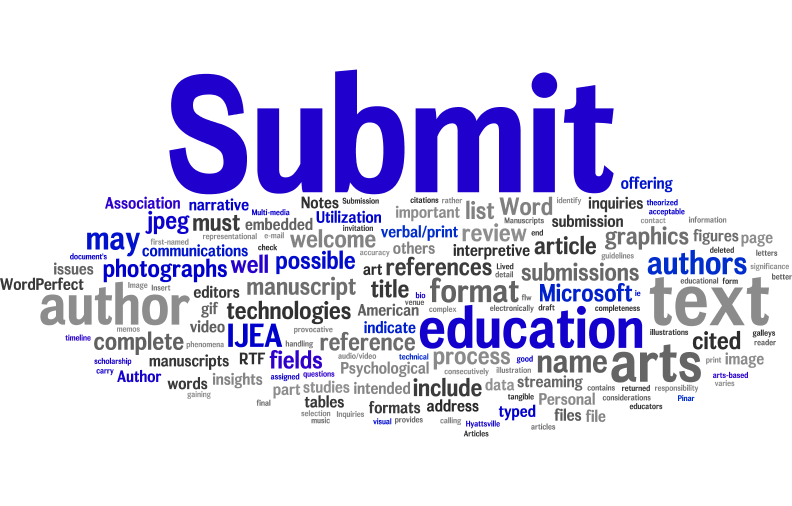| Volume 18 Number 24 | June 15, 2017 |
Using Arts-Based Research to Explore Peak Experiences in Five Gifted Children
Steve Haberlin
University of South Florida, USA
Citation: Haberlin, S. (2017). Using arts-based research to explore peak experiences in five gifted children. International Journal of Education & the Arts, 18(24). Retrieved from http://www.ijea.org/v18n24/.
Abstract
During this inquiry, I describe my journey as a beginning arts-based researcher, using this methodological approach to explore the “peak experiences” of five, second-grade gifted students in a general classroom. Concerned with collecting valid data from young children through traditional interviewing techniques, I turned to Arts-Based Educational Research (ABER) and had the students create self-portraits with captions to illustrate peak experience. After converting the visual data into language and serving as a bricoleur, I engaged in thematic coding (Braun & Clarke, 2006). The following themes emerged: students perceived the teacher having a direct impact on their peak experiences; students experienced peak experiences when being praised or recognized; students experienced peak states when engaging in intellectually challenging curriculum as well as creative activities such as drawing. I discuss the importance of training for those working with gifted students, and based on Foucault’s (1980) ideas on power, address the notion the classroom teacher might possess much power over the conditions that contribute to the students’ peak experiences. Finally, I note the potential of considering arts-based educational research to inform the field of gifted education.
Visual Abstract




